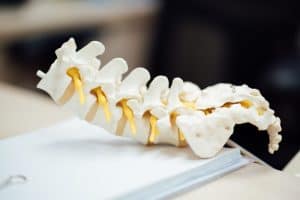Novartis gets German OK for swine flu vaccine
pharmafile | November 5, 2009 | News story | Research and Development, Sales and Marketing | Novartis, h1n1
Novartis’ swine flu vaccine Celtura has been approved in Germany, its first market, in what is a major milestone for the company’s cell-based vaccine production programme.
Most vaccines are manufactured in chicken eggs, but Novartis has been a pioneer in producing them in mammalian cell culture instead, winning approval for its cell-based seasonal flu vaccine, Optaflu, in 2007. Using cell culture is a much faster process than the chicken egg method, which can take months to produce each batch.
“We quickly ramped up capacity at our licensed cell culture facility in Marburg, Germany to respond to the need for a pandemic vaccine,” said Andrin Oswald, chief executive of Novartis Vaccines and Diagnostics.
A second cell culture facility in the US is “close to completion”, he added.
Novartis has already started delivering shipments of its egg-based swine flu vaccines, Fluvirin and Focetria, to countries around the world in the wake of their approval in the US and EU in September.
Celtura has been approved in Germany for active immunisation of people aged over six months against the H1N1 strain of influenza A, meeting the company’s objective of registration ahead of the 2009/2010 flu season.
The vaccine contains 3.75mcg of H1N1 antigen and 0.125ml of MF59, an adjuvant that boosts the immunogenicity of the shot and allows limited antigen supplies to be stretched further.
Novartis has tested the vaccine in clinical trials involving 1,850 people and found that vaccination with a single dose of Celtura induced an immune response considered sufficient to protect against influenza.
The company has said it will press ahead with plans to seek registration for Celtura in other countries including Japan and Switzerland.
Chinese investment
Ahead of the news of Celtura’s approval Novartis also passed another milestone for its vaccine business with the purchase of an 85% stake in Chinese vaccine producer Zhejiang Tianyuan for $125 million.
The Swiss drugmaker said the deal would help it expand its currently “limited presence” in the $1 billion Chinese vaccines market, which is growing at a double-digit percentage rate. Privately-owned Tianyuan already offers a range of vaccine products in China, with a market share of around 3%, and saw its sales double between 2006 and 2008 to $25 million.
Other manufacturers with aspirations to get bigger in Asian vaccine markets include Sanofi-Aventis, which bought a majority stake in Shantha Biologics in July, and GlaxoSmithKline, which formed a joint venture with China’s Jiangsu Walvax Biotech in October to make measles, mumps and rubella (MMR) vaccines.
Related Content

Novartis shares new data about Fabhalta for IgAN treatment
Novartis has announced new results from a pre-specified interim analysis of its phase 3 APPLAUSE-IgAN …

Novartis shares new data for Zolgensma in children with SMA
Novartis has announced new data to continue the support of the clinical benefits of Zolgensma …

Novartis to acquire MorphoSys AG for €2.7bn
Novartis has announced that it has entered an agreement to acquire MorphoSys AG for €2.7bn, …








